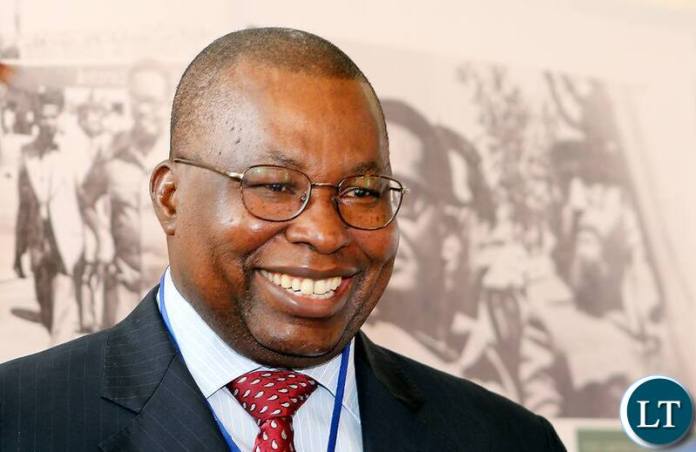By Albert M.Muchanga
We are three years into the start of trading under the African Continental Free Trade Area. This is a major lever for the productive transformation of Africa. It is opening up investments in many sectors, including the development of regional, continental, and global value chains.
We also have the Lobito Corridor encompassing Angola, DRC, and Zambia. The Corridor is opening up inter-country transport, communication, and energy connections, in addition to the development of agriculture and mining.
Furthermore, we have complementary platforms to this marketplace, some of which have started operating. I will sample a few.
In the area of trade information, we have the African Trade Observatory and the Intra-African Trade Fair, both of which are already operating. The Intra-African Trade Fair has, since 2018, generated around US$118 billion in business-to-business transactions.
In the sector of investment and finance, we have the Pan African Payment and Settlement System, which is facilitating payments in national currencies in intra-African trade, with net settlements in foreign exchange. We also have the African Exchanges Linkage Project, rolled out in 2022, which initially connects seven stock exchanges across 14 African countries. In this way, it is contributing to integrating Africa’s capital markets by facilitating cross-border securities trading.
This is the first step toward the establishment of the Pan African Stock Exchange. Furthermore, we have the African Virtual Investment Platform, which will be rolled out by the end of this year, with the key tasks of removing investment barriers and consequently de-risking the African investment market.
Through the African Development Bank, in which the US is among the shareholders, we have the Investment Forum, which has, since 2018, generated US$180 billion in investment interest. In the sector of quality infrastructure, we have the Made in Africa Guide, which will be rolled out in November this year. The Made in Africa Guide will assure innovation and quality, as well as the removal of technical barriers to intra-African trade.
In the sector of education, we are working on an African Continental Qualification Framework. From a business perspective, we see stronger harmonization of qualification frameworks and skill accreditation programs across Africa as being foundational for labor market integration as we move towards creating a single African market, starting with the African Continental Free Trade Area. This is because comparable qualification frameworks are key building blocks of labor market integration. On the other hand, their absence ushers in non-tariff barriers in the labor sector, which contribute to lower levels of intra-African trade in services, general productivity, and economic integration.
A key development in the health sector is the establishment of the African Medicines Agency, which will, among others, facilitate regulatory harmonization. This is critical to attracting investments in our pharmaceutical industry as well as promoting intra-African trade in this sector.
In the sector of mining, we have the Africa Green Minerals Strategy. Through it, we will contribute, among others, to the production of green energy. With this, Africa is signaling that her people are committed to the green transition, although we are among the least contributors to climate change.
In the sector of transport, we have the Single African Air Transport Market, which will, once operational, facilitate cost-effective air connectivity, efficiency, and price competitiveness, and, among others, the development of tourism.
In the sector of trade policy, a readiness assessment towards an African Customs Union/Common Market has been completed. The results of the study show that it is feasible to move towards this level of deeper economic integration and market consolidation, the next step towards creating a single African market in goods and services.
In the sector of global economic governance, the African Union is now a permanent member of the Group of 20. We thank the US Administration for the strong support to Africa to be a member of the G20. This is the ‘premier forum for international economic cooperation’ aimed at achieving stable and sustainable global growth.
I will end the sampling by talking about the collaborative framework for the private sector. We have the African Business Council, which networks with business organizations around the continent and uses this network to dialogue with African policymakers on how to improve the business climate in Africa.
It is against the background of this sample of market opening and consolidation initiatives that I reiterate my call to American businesses to invest in the African Continental Free Trade Area marketplace. By doing so, you will have duty-free access across Africa, a continent with a population of 1.4 billion people and growing. We must add to this the vast reserves of virgin agricultural land and natural resources. Investing in the African Continental Free Trade Area also opens up opportunities for US businesses to export to the USA, using preferences in AGOA, and, in the process, contributing to deeper trade and investment ties between Africa and the USA. In this respect, we look forward to early and long-term authorization of AGOA.
The author is the Commissioner for Trade and Industry of the African Union Commission.

